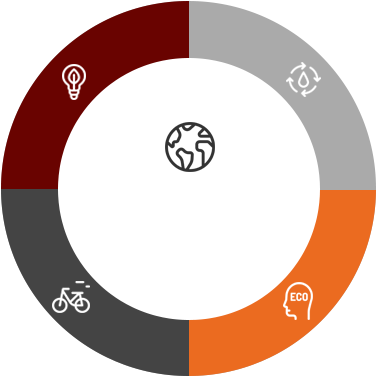Introduction : Department of Energy Policy & Engineering

Introduction
Energy is a cornerstone of the national industrial system, and is an indispensible good in our daily lives. In this regard, energy policy is a complex system, where economics, environmental protection, and sustainability issues are interconnected. As the efficiency in public investment and budget planning gets higher and of critical importance, we can’t overestimate the importance of national energy planning and management.
The Department of Energy Policy and Engineering offers a curriculum that builds capability to understand and solve problems, which can arise from such a complex system in a integrated way. The program is designed to foster global-level energy policy decision makers and executives who understand both theory and practice through lectures, practical training, and sharing experience with colleague students from various fields, including electric power companies and overseas public institutions.
The department operates a two-year program: the energy policy and engineering courses in the first year, and the dual degree classes and thesis work in the second year at Anhalt University in Germany*(1). Depending on the course selection, you can earn Master of Engineering(ME) or Master of Science(MS) degree from KINGS. And you can get additional Master of Business Administration(MBA) degree from Anhalt University as a multiple major.
*(1) It varies depending on individual selection of degree and funding sources.
Vision
We shall nurture policy-makers or executives who have both practical and theoretical knowledge and contributes to national development and co-prosperity of humankind through education and research on environmental protection and sustainable energy policy & engineering.


Challenging Expert in Energy
Policy & Engineering

Energy Sharing
Economy

Environment Friendly
Energy Technology

Sustainable
Energy Policy
Leadership in Energy Policy
and Engineering
Goal and main contents of education
The progressive educational goals consist of three steps: inter-disciplinary understanding of the energy system, cultivating global-level ability to project assessment and management, and fostering 3E-based*(2) energy policy experts. Details are as follows.
Goal 1: Inter-disciplinary understanding of the energy system
- - Sustainable Eco-friendly Energy Supply and Policy
- - Energy economy and system
- - Digital and decentralization of energy system
Goal 2: Cultivating global-level ability to project assessment and management
- - Understanding of Energy Market and Transactions
- - Project Assessment and Risk Management
- - International Accounting and Financial Analysis
Goal 3: fostering 3E-based*(2) energy policy experts
- - Public Acceptance and leadership
- - Decision-making based on system engineering
- - Research on thesis in energy policy and management field
*(2) 3-E means Energy, Environment, Economics